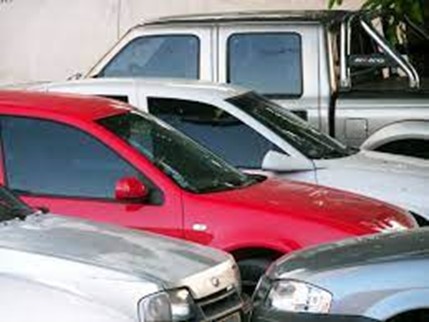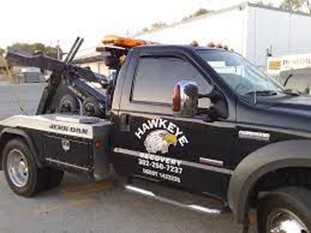Nathan DeLadurantey works as a consumer rights attorney, which means he does not represent businesses or creditors, only consumers. Attorney DeLadurantey handles all consumer matters involving identity theft, debt collection, auto repossessions and other general consumer issues. Mr. DeLadurantey is one of the few lawyers that has taken his consumer law cases to trial, winning verdicts in favor of his clients. In the article below, Mr. DeLadurantey talks about stopping an auto repossession before it happens in Wisconsin, the consumer acts that can protect a vehicle owner, and what to do if the repossession process has already begun.
Everybody falls on hard times, causing people to fall behind on their vehicle payments. Individuals shouldn’t feel ashamed if they find themselves in this situation, nor have they somehow lost their right to proper treatment throughout the repossession process.
Wisconsin boasts strict consumer protection laws and repossession regulations that limit what a lender (or the repossession agents working for them) can do. Even if a lender decides to conduct a non-judicial repossession (i.e., taking a vehicle without a court order), the third-party repo agents cannot breach the peace. In this state, no simply means no explains Nathan DeLadurantey, attorney.
Unlike in other states, vehicle repossessions here cannot come as a surprise if a car owner is covered by the Wisconsin Consumer Act (WCA). Nathan DeLadurantey explains that the Act covers those with original loan limits under $25,000. Vehicle loans initially over $25,000 are protected under the state’s Uniform Commercial Code (UCC).
Wisconsin Repossessions Differ from Other States
Nathan DeLadurantey, attorney explains that many will be happy to learn that stopping a repossession before it happens in Wisconsin is absolutely possible. As per the state’s consumer laws, there are multiple ways vehicle owners can protect their rights and prevent repo agents from taking their cars.
Repossession Regulations
Repossession is only an option following a consumer defaulting on their loan. And even then, Wisconsinite’s benefit from a whole host of laws and legislations limiting lenders’ and repo agents’ actions against them and their vehicles according to Nathan DeLadurantey, attorney.
Vehicle owners should educate themselves on the state’s repossession regulations before trying to prevent the action, so they can remain on the right side of the law.
Defaulting Limits
Nathan DeLadurantey, attorney says that the number of payments borrowers can miss before repossession is a real risk varies, depending on the law covering the loan.
For loans covered by the Wisconsin Consumer Act, ten days late on more than one monthly repayment is considered defaulting.
For loans covered by the Uniform Commercial Code, just one day late is classed as in default, but this varies from agreement to agreement. Lenders rarely repossess after only a day. Typically, they don’t start repossession until consumers fall at least two months behind.
15-Day Repossession Notice
WCA-covered loans require creditors to mail borrowers a letter before they can send repo agents in. This right-to-cure notice gives in-default borrowers 15 days to catch up on missed payments plus late fees says Nathan DeLadurantey.
However, those who receive the right-to-cure letter and cure it twice in 12 months on the same loan lose this right if a third time occurs.
Lenders with UCC-covered loans aren’t required to notify consumers prior to the repossession. They only receive a letter after the fact states Nathan DeLadurantey, attorney.
Stopping a repossession before it occurs can be as simple as settling payments when the right-to-cure notice arrives. But should borrowers fail to do that, they have options:
#1 No Means No
Repossession agents aren’t allowed to breach the peace in Wisconsin. This means that if the vehicle’s owner tells the agent to stop taking their car, they have to stop. That’s simply all there is to it — calmly but firmly protest the repossession, and they must cease all actions.
If the agent still takes the vehicle after an objection occurs, the lender has broken the state’s strict consumer protection laws. The only way borrowers do not have this right is if the person repossessing the vehicle is a sheriff’s deputy with a court order says Nathan DeLadurantey, attorney.
#2 Park the Car in an Enclosed, Locked Space
Repo agents can’t enter enclosed, locked spaces like houses and garages. Depending on the situation, even fenced-in places are prohibited.
That said, Nathan DeLadurantey explains that they can enter driveways and parking lots, allowing them to take borrowers’ vehicles from public places if they spot them. At this point, enacting the “breach of peace” protocol and objecting to the repossession should do the trick.
#3 Proceed in Court
Finally, the Wisconsin Consumer Act states borrowers must receive a notice before repossession begins. Once arrived, they can tell the lender they’d like to get a court order.
Requiring the creditor to go to court prevents repossession before obtaining the desired order. Thus, it gives people chances to work something out with the lender themselves or argue their case.
Whatever method vehicle owners choose, the quicker the matter is settled, the better. Experts recommend hiring a consumer protection attorney to ensure borrowers’ rights are maintained throughout the process. They specialize in providing representation for vehicular repossession cases throughout the state.










